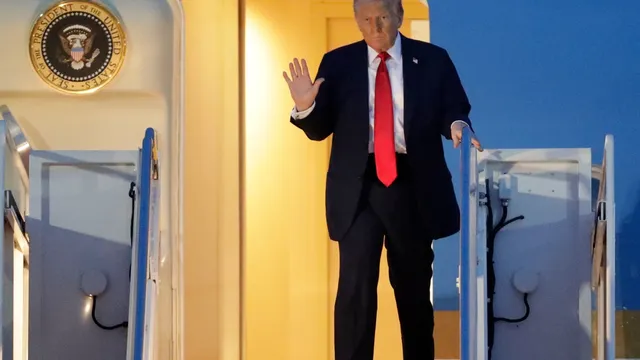
Trump takes action against ticket scalping in entertainment
2025-04-02 00:00- Donald Trump signed an executive order focused on protecting consumers from exploitative ticket scalping in entertainment.
- The order mandates the enforcement of the BOTS Act and improved price transparency throughout the ticket purchasing process.
- The aim is to make live events more accessible for fans while ensuring fair practices in the ticketing industry.
Express your sentiment!
Insights
In response to ongoing concerns over ticket scalping, Donald Trump signed an executive order targeting exploitative practices in the concert and entertainment industry. The order primarily directs the Federal Trade Commission (FTC) to enforce competition laws and uphold the Better Online Ticket Sales (BOTS) Act, which aims to increase transparency in ticket pricing and combat the rampant use of bots for purchasing tickets in bulk. It also directs federal government agencies, including the Treasury Department and the Department of Justice (DOJ), to ensure ticket scalpers comply with tax regulations and other relevant laws. Furthermore, the executive order seeks to create a report summarizing actions taken to address these unfair practices and recommends further legislative measures to protect consumers within this industry. The order highlights the significant economic impact of the live concert and entertainment sector, which contributes approximately $132.6 billion to the economy and supports nearly a million jobs. Trump's administration aims to level the playing field for fans, ensuring that they are not priced out of their favorite events due to the unscrupulous actions of scalpers, who artificially inflate ticket prices often by hundreds of percent. Kid Rock, a prominent figure in the music industry, supported the initiative, noting that ticket prices have become increasingly inflated and a barrier for everyday fans seeking to enjoy live performances. He emphasized the importance of artists receiving fair compensation for their work while concurrently advocating for consumers' ability to access affordable ticket options. The executive order aligns with previous efforts by the Biden administration to address junk fees and monopolistic practices within the ticketing industry, indicating a rare bipartisan approach to tackling consumer protection issues in entertainment.
Contexts
The impact of ticket scalping on concert prices is a critical issue that has gained much attention in recent years. Ticket scalping, the practice of buying tickets in bulk and reselling them at a higher price, has significant implications for both consumers and concert organizers. This practice often leads to inflated prices in the secondary market, where fans are forced to pay considerably more than the original face value for access to popular events. The primary reason for this phenomenon is the high demand and limited supply of concert tickets, which scalpers exploit to maximize their profits, thereby negatively affecting the accessibility of live music experiences for the average fan. Scalpers typically employ automated software, known as bots, to snatch up large quantities of tickets the moment they go on sale. This form of ticket acquisition not only limits the availability of tickets for genuine fans but also distorts the market prices. In many cases, the prices can skyrocket up to several times their original cost, making it unaffordable for many who wish to attend. Additionally, this practice has led to increased scrutiny and calls for regulation, as stakeholders, including artists, fans, and legislative bodies, seek to create a fairer system for ticket distribution. Studies have indicated that ticket scalping can lead to a sense of disillusionment among fans and may discourage them from attending future concerts. When fans are unable to secure reasonably priced tickets, they often express dissatisfaction and may turn to alternative forms of entertainment. This has the potential to harm the reputation of the artists themselves, as their shows may appear less popular due to the lower number of attendees. Furthermore, the presence of scalping can create a perception of inequality within the music industry, where only those with the financial means can readily access live performances. In response to the growing concerns surrounding ticket scalping, some venues and organizers are implementing measures aimed at mitigating its effects. These measures include the use of personalized tickets, limiting the number of tickets purchased per transaction, and exploring blockchain technology to enhance transparency in the ticketing process. While these efforts show promise, the ongoing battle against scalping requires a multifaceted approach, including collaboration between industry stakeholders and government regulation, to ensure that concert prices remain within reach for all fans, thereby preserving the integrity and accessibility of live music.